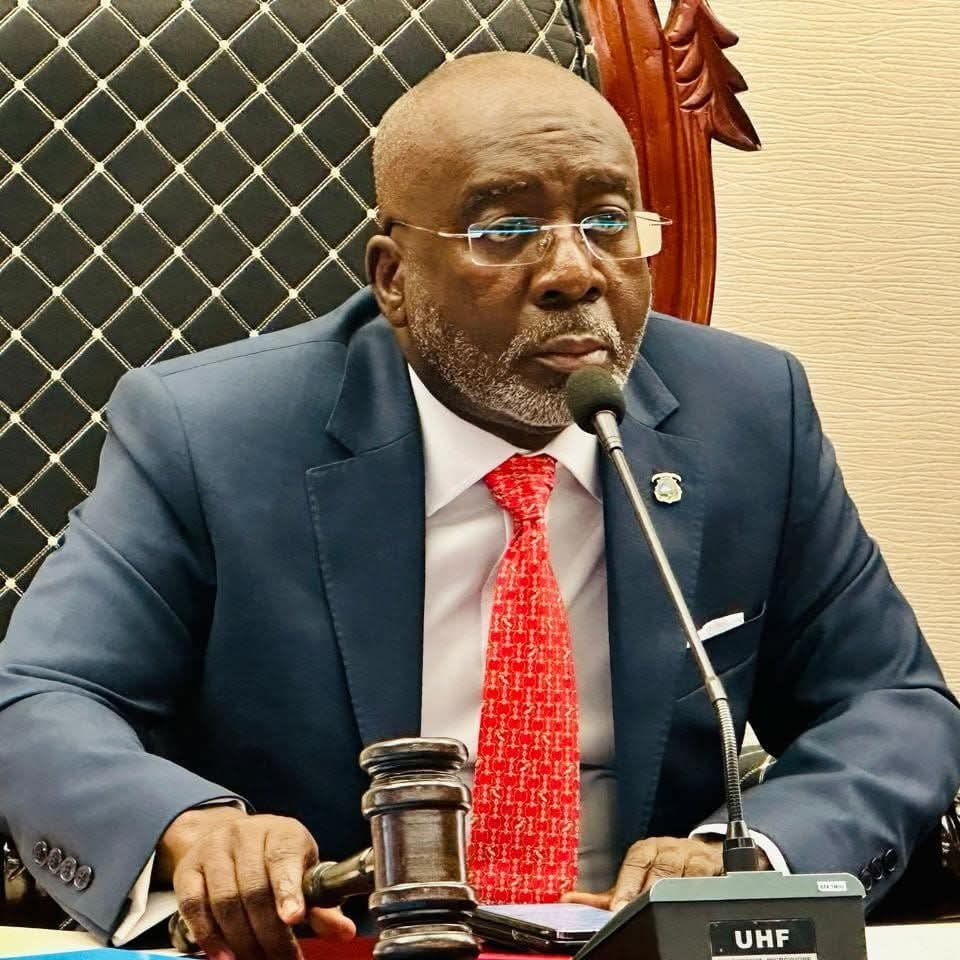Former Speaker and current Grand Kru County District #2 Representative, Hon. J. Fonati Koffa, has introduced a legislative proposal calling for the creation of a National Social Safety Net Fund, which he says will provide critical financial relief to vulnerable Liberians struggling to meet essential needs such as school fees and rent.
In a formal communication addressed to House Plenary , Representative Koffa urged the 55th National Legislature to act swiftly to establish a USD 25 million fund that would serve as a lifeline for families facing increasing economic hardship.
According to the Grand Kru lawmaker, the worsening living conditions of ordinary Liberians have reached a breaking point, as families are being displaced due to unpaid rent and children are being kept out of school for lack of fees. “Many families have become migratory, moving from one place to another when rent becomes due,” Koffa lamented. “The driver who takes our children to school has his own children sitting at home, forbidden to come outside because of the shame associated with inability to pay school fees.”
He criticized what he described as “huge legislative and executive benefits, large and luxurious foreign travel, and wasteful government spending,” noting that such excesses continue while ordinary Liberians bear the brunt of economic suffering. “While we seek to rescue Liberia, our solutions must be equitable, with no one group singled out to pay a higher price,” he stressed.
Drawing comparisons to international models, Koffa pointed out that even advanced economies like the United States maintain welfare programs such as food stamps and rent assistance to cushion vulnerable populations. He emphasized that Liberia must emulate these practices to ensure that “no family is left behind.”
To finance the proposed Social Safety Net Fund, the lawmaker outlined a series of fiscal reform measures aimed at cutting costs and redirecting resources from non-essential areas. He proposed the reduction of non-essential benefits and allowances across the three branches of government, a significant decrease in foreign travel for public officials except those on critical national missions, and a limitation on the purchase of new vehicles by ministries and agencies. He further suggested that part of the operational surplus from the Liberia Petroleum Refining Company (LPRC) be redirected to the fund and that a portion of the required money be borrowed from the National Social Security and Welfare Corporation (NASSCORP), to be repaid over time.
“These are not extraordinary sacrifices,” Koffa argued. “They are reasonable and patriotic adjustments to ensure that our people can survive these difficult times.”
He concluded by appealing to his colleagues to treat the matter with urgency, urging that the communication be forwarded to the relevant committees for review and subsequent action during the submission of the 2026 National Budget.
“As Representatives of the people, we must respond with urgency and compassion,” Koffa said. “The time to act is now.”
If enacted, the National Social Safety Net Fund would become one of Liberia’s first dedicated social protection programs, directly targeting the financial vulnerabilities of low-income families — a move many observers say could mark a significant step toward equitable economic governance in the country.


